As a proud born and bred Govanite, I recall my father and his friends telling me that Alec (note it was rarely Alex back then) Ferguson’s father had once ran a Celtic supporters bus from Neptune Street in Govan. This was in the 1970’s and even my limited footballing knowledge from old bubble gum cards, meant that I knew that Ferguson was an ex-Rangers player and it obviously struck me as odd that this could be the case. This was actually true. Fergie’s old man did run a bus from Neptune Street, which in those days was referred to as the Irish channel and the great man actually made reference to this in his autobiography.
I first recall seeing Alex Ferguson play against Celtic in 1974 when he was at the tail end of his career with Ally MacLeod’s Ayr United. Celtic played in an unusual change strip of green and black vertical stripes and I remember vividly the vitriolic abuse given to Fergie from an element of the Celtic support. Apparently this dislike of him could be traced back to the 1969 Scottish Cup final when he was alleged to have struck Billy McNeill during the course of that game. He took ‘dog’s abuse’ that day and it was pointed out to me that the ’69 final had been his last Rangers game, after Celtic won 4-0, and he had left Ibrox for Falkirk under a dark cloud.
A few weeks after that Ayr fixture, Celtic played Atletico Madrid in the semi final of the European Cup. A friend on mine’s father had previously worked with Ferguson in Remington Rand in Glasgow and spotted him outside Parkhead ticketless. He had a spare ticket so he offered it to Alex and they went in together. It may surprise people to know that Fergie, an ex Ranger, was rooting for Celtic all the way and became particularly animated at the end when the Celtic players finally lost patience at full time in the tunnel area as a melee ensued, resulting in police intervention.
By 1977 Ferguson was manager of the most exciting young football side in the country – St Mirren. The newly promoted Paisley Saints took their place in the Premier League for the first time with their young players, McGarvey, Fitzpatrick, Stark, Richardson and Reid, being some of the most coveted players in the UK. Fergie managed to blend their youthful enthusiasm with some very experienced signings, Jimmy Bone, Jackie Copland and Ian Munro, and the Buddies enjoyed a fine season. Incredibly they beat Celtic in three of the four league fixtures in what was Jock Stein’s final season as Celtic manager. Around this period, I can still recall passing ‘Fergie’s Bar’ on Paisley Road West on the supporters bus home to Govan and there was always a fair bit of banter on passing that establishment when any of Fergie’s teams had beaten Celtic.
He had now established himself as one of the foremost managers in the country and it is with deep regret that Saints’ fans recall his dismissal in 1978. Fate can be a funny thing and when Aberdeen manager Billy McNeill took up the reigns in Stein’s place at Celtic then Fergie, now a free agent, replaced big Billy at Pittodrie. St Mirren fans must wonder what they missed out on given the success Ferguson was later to enjoy at Aberdeen.
Much has been made of the ‘New Firm’ tag over the years but the truth is that Celtic and Aberdeen, with one honourable exception, fought it out every season for the league title between 1980 and 1986. McNeill and Ferguson were very similar in nature. Both were proud men and were real motivators to their players and they equally hated losing. This sometimes transferred itself on to the field of play and Celtic – Aberdeen clashes were highly fraught affairs. As with most keen rivalries, there was mutual respect for each other but on the field no quarter was asked and no quarter was given. Many Celtic players have since commented that these clashes were more keenly fought than the big Glasgow derby games of the same period.
When McNeill moved to Manchester City in 1983 in acrimonious circumstances, Davie Hay took over as Celtic boss but the Celtic v Aberdeen clashes were still keenly contested clashes. It’s an interesting trivia question to note; who is the only manager to beat Alex Ferguson in a head to head whilst he was manager of Aberdeen ? The answer, rather surprisingly is Davie Hay who bettered Ferguson during Celts-Dons games between 1983 and 1986.
In November 1986 it was not a great surprise when Alex Ferguson defected from Aberdeen to Manchester United. There was an inevitability to this move as it was only a matter of time before he moved to a bigger stage and Old Trafford certainly provided a greater platform. It is well documented that United struggled during his early years and the irony is that Fergie was to face Celtic a fair few times in testimonials and friendlies with Celtic faring rather well in these encounters.
1987 Celtic 1-0 Man Utd (Aitken)
1990 Man Utd 1-3 Celtic (Robson)
1992 Celtic 1-1 Man Utd (Lisbon 25th anniversary)
1993 Man Utd 1-0 Celtic (friendly)
1994 Man Utd 1-3 Celtic (Hughes)
1995 Celtic 3-1 Man Utd (McStay)
1997 Man Utd 1-2 Celtic (McClair)
2001 Celtic 0-2 Man Utd (Boyd)
2001 Man Utd 3-4 Celtic (Giggs)
2006 Celtic 0-3 Man Utd (friendly)
2006 Man Utd 1-0 Celtic (Keane)
In 2006 there was much anticipation when Celtic and Manchester United went head to head in Europe for the first time, in the Champions League group stages. Not many gave Celtic a chance in advance against Fergie’s elite side with their expensive stars. Tommy Docherty was speaking in the Citizen’s Theatre shortly before these games. ‘The Doc’, famed for being a successful ex-United manager but also an ex-Celt, was asked who he thought would win. Tommy said that his ‘head says United but my heart will always, always say Celtic.’
In the first game at Old Trafford Celtic impressed onlookers by taking the game to United. Jan Venegoor of Hesselink and Shunsuke Nakamura scored two excellent goals but United prevailed by 3-2 after a shameful dive by Ryan Giggs produced a controversial penalty. In the return game at Parkhead, Shunsuke Nakamura and Artur Boruc were to become the stuff of legend. Nakamura’s free kick was a wonder goal which gave Celtic a 1-0 win, and was rightly broadcast throughout the footballing world, but only after Boruc had made a sensational penalty save to deprive Louis Saha. Ferguson had joked afterwards that he was used to the electric atmosphere at Parkhead from his Aberdeen days but given his competitive nature he would have been livid at suffering a defeat on his return to his home city.
In 2008 the teams came together again in the Champions League. Old Trafford hosted the initial game again with Wayne Rooney inspiring United to a comfortable 3-0 win. A few weeks later in Glasgow Celtic gave their all and took the lead through a terrific lob from Scott McDonald. In the second half United pounded the Celtic back line, eventually playing with four forwards – Ronaldo, Berbatov, Rooney and Tevez. Their pressure paid off late on when Giggs equalised after Artur Boruc couldn’t hold a Ronaldo shot. Celtic had again given a good account of themselves and Fergie was kind enough to comment that he wished that Old Trafford could match the electric Parkhead atmosphere.
Alex Ferguson retired from football management in May 2013. In 2017 Celtic were celebrating the 50th anniversary of the Lisbon Lions winning the European Cup. The club hired the Hydro in Glasgow to host an event for which Rod Stewart was the main attraction. However, Alex Ferguson was magnanimous enough to attend and speak in detail about Celtic’s achievement in Lisbon and share some personal memories from his days as a player. He described Celtic’s victory as ‘the greatest feat in football’ and was given a rousing, standing ovation. by those in attendance.
Alex Ferguson accepted the ovation with grace. Here was a man who had been a tremendous adversary for Celtic during his considerable career as player and manager with Rangers, St Mirren, Aberdeen and Manchester United and he was now feted by Celtic supporters as a highly respected elder statesman of the game.
How proud his father would have been to witness that.

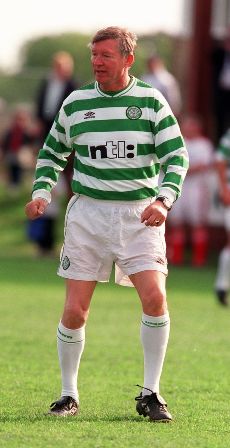
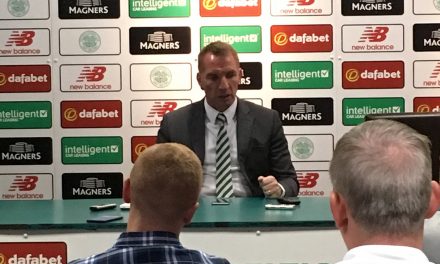
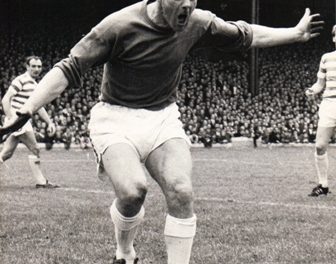
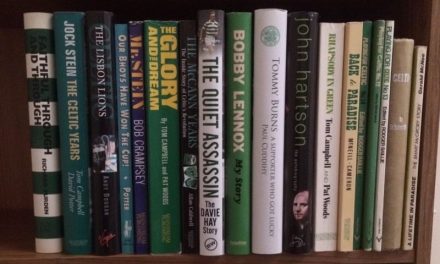
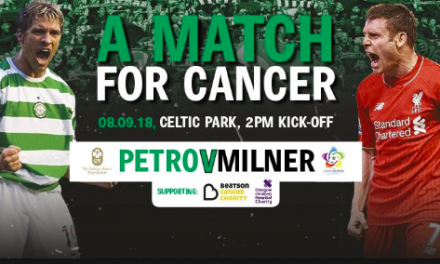
Подаются базы Готовые Cвежие базы за январь 2019 года(профилей, топиков, гостевых досок и комментариев для прогонки Xrumer и другими аналогичными программами.
Очищеные базы для XRumer 18.x.x и GSA Search Engine Ranker ) так же возможен сбор баз на заказ таких порталов как авито и тд [b]По всем возникшим вопросам Вы можете обратиться в скайп логин pokras7777[/b]